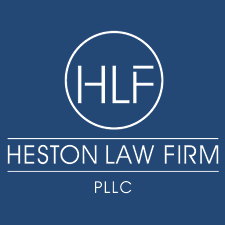When You Can Sue a Payday Lender for Threatening You with Hot Check Charges or Arrest
Payday loan companies often threaten to file hot check charges with the District Attorney (DA) if you default on a loan. You may even get a call from a Payday lender who says they want your work address because they are going to have you arrested at work tomorrow – in front of your boss and fellow employees.
- Don’t be fooled. These kinds of threats are usually just a bluff. The truth is that Payday loan companies very rarely, if ever, can legally file hot check charges on anyone.
- Even if they do file charges, they have no say-so regarding whether the DA will follow up on those charges. They certainly have no authority over where a person may be arrested.
- Not only that, but you may have a legal right as a consumer to file a lawsuit against a Payday lender who makes these kinds of outlandish threats.
Did you know that under some circumstances you will be allowed to turn the tables on those Payday loan companies and collect money from them instead? Don’t allow them to push you around or lie to you. Understand the law and use it to your advantage to protect yourself from Payday loan bullies.
What Are Your Your Legal Rights?
Even if you did, in fact, break the law it doesn’t matter. No Payday loan company has the right to threaten you. If they threaten that they are going to “have you arrested” or have you picked up on charges at a certain place and time, they are ones breaking the law. You can take action, and there are laws to protect you and get you the cash damages that you deserve if you are eligible because you were the victim of this kind of illegal intimidation tactic.
The Texas Bad Check Law
The first things to understand is that Payday loan companies used to ask borrowers for actual post-dated checks. But these days they typically require that you sign paperwork authorizing them to withdraw the payments out of your bank or checking account. The laws that cover hot checks treat both of these methods – paper handwritten checks and automatic electronic withdrawal – as exactly the same.
Next, under the Texas Issuance of Bad Check Law (Penal Code 32.41), you only break the law if you write a check or authorize a payment or withdrawal when you know for sure at the time you do that it is going to bounce. In other words, if at the time that you take out your Payday loan you intend to make your payment (but later accidentally miss your payment or bounce your check), you did not break the law.
The Texas Theft of Goods or Services Law
Texas Theft of Goods or Services Law (Penal Code 31.06) is another law that says that it is illegal for you buy goods or serviceswith a check that bounces or by authorizing an electronic payment and the electronic payment bounces.
But Payday loans are not considered by the law to be goods or services. So the Texas Theft of Goods or Services Law does not apply to Payday loans. There is absolutely no way for it to be used against you by a Payday lender.
You Can Sue for Damages as a Victim of Unlawful Threats
- In the payday loan situation, it is almost impossible to violate either of the two hot check laws explained above. More importantly, it is against the law for a Payday loan company to threaten to prosecute you or “have you arrested” when you haven’t broken the law.
- In Texas, you can sue payday loan companies for making illegal threats. And the best thing about this type of lawsuit is that it doesn’t cost you a dime. Our law firm accepts this type of case on contingency. If we win your case, the payday loan company has to pay all of our fees. If we don’t win your case you do not owe us a penny. So either way, it’s free to you.
Are you wondering if the payday loan company can really file hot check charges against you? Or are you just trying to figure out how to make them stop calling so that you can pay them? Just fill out our contact form, and we’ll review your situation and let you know if you have grounds for a lawsuit against them.
It’s completely free, and there is no obligation.


